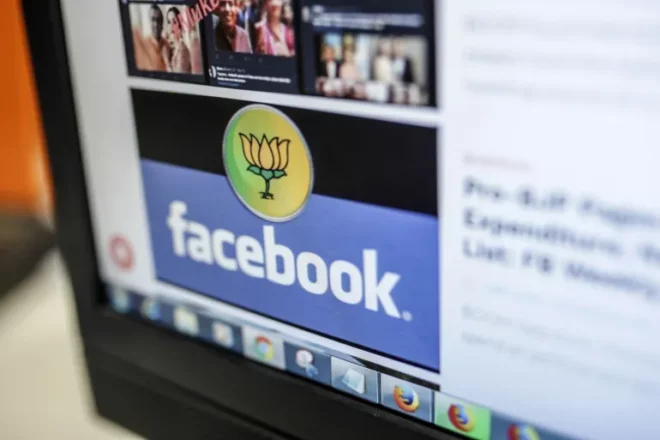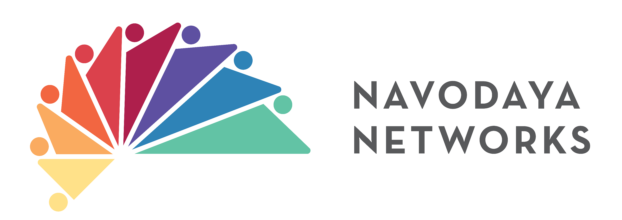
Pic Credit: al Jazeera
VC
The Reporter’s Collective (TRC) has conducted an investigation, in coordination with Ad Watch, an independent researcher, into some distasteful and certainly surprising revelations into the way that commercial social media platform Facebook (which recently renamed itself Meta), that also owns popular SM platforms Instagram and WhatsApp, has been acting with regard to the Indian electoral scenario.
The last is particularly significant in this context, because it acts as a surrogate and exponential multiplier of scandalous content, and that has been linked in the past to a number of horrendous quasi-genocidal actions across the world.
And it is precisely this, well-crafted fakes bombarded on Facebook users in the form of ‘promoted’ (actually, advertised) posts, that have been the hallmark of one particular political party. A large number of these posts were not actually placed by the principal, but by thinly disguised ‘surrogates’.
Ominously, many were routed through one particular company, that turns out to be a subsidiary of India’s largest private sector business enterprise, one that is very closely linked with the ruling party. The current scion/promoter is not just India’s wealthiest person, among the world’s top ten richest, but his personal wealth reportedly grew far faster in the last year than any of the world’s most well-known billionaires. And this, when the country’s economy is in disarray, with galloping inflation and unemployment, and no sign of a turnaround. As it happens, this company, that now lays claim to being India’s largest and fastest growing digital advertisers, is not the only surrogate supporter working for the ruling party. A surprising number of the others, though, cannot be tracked outside their presence at the BJP office in Delhi, as their home page weblinks don’t work.
Two of India’s independent institutions are named: the Supreme Court, that severely noted Facebook’s association with divisive media messaging and interference with India’s internal affairs, but then left the topic without pronouncing an order to solve, or even address the core issues; and the Election Commission, that has adroitly avoided taking note of the multiplier effect of both direct advertising and surrogate political advertising that take place on digital platforms (it has strict rules regarding the use of print, television and radio), even after the Supreme Court’s sounding a note of caution.
All of this is noted in the 3 part series of articles published by al Jazeera, the well-known international publication, together with TRC and Ad Watch. The coverage got near-instant reflection across a large number of countries, including the USA, which was the first country to have had its national elections (presidential elections) tampered with using Facebook’s distorted media reach and influence and selective promotion plans for commercial advertisers.
The second was the UK, which called a referendum on continuing its lengthy association with the European Union, which in turn resulted in it leaving the union of nations. Both of these elections turned out to have been deliberately manipulated by a handful of extremely wealthy and influential businesspersons, together with the help of a data analytics business called Cambridge Analytica. That company was forced to shut down after the scandal broke, but the technology it developed was acquired by one of the US-based billionaires, Peter Thiel, and continues in business as Palantir.
The pattern of that action, which has been described in detail by the lead scientist on the project, and later whistleblower, Christopher Wylie, is echoed in the Indian scandal.
The major difference is that no local mainstream media: print, radio or television, has so far taken up the issues raised in the TRC story. In contrast, the Cambridge Analytica story was widely reported in both countries, apart from “almost” everywhere else in the world.
However, it is noteworthy that the British exit from the EU (Brexit), which has caused a considerable series of economic and political problems both within the UK and across Europe, some of which have worsened thanks to the pandemic, shows no sign of being reconsidered, thanks to the continuing political strength of the ruling Conservative Party.
This is much like the continuing political strength of India’s ruling party, the Bharatiya Janata Party: both are consistently strengthened by waves of both positive influencing of the party position, which is majoritarian, and corrosive and divisive influencing against political opponents (in India, this includes the minority communities themselves, apart from their favoured political representatives).
In the USA, apparently, the overt support given to successful presidential candidate Donald J Trump in 2016, by the Facebook company/platform, either continues directly or indirectly, and divisive politics and white supremacism are exceedingly visible in many parts of the country. If the direct influencing through selectively attractive advertising deals are no longer a part of the formula (this has not been addressed in the series of articles published by al Jazeera that are referenced here, but many of the senior management staff and the founder, Mark Zuckerberg, were interrogated in the US legislature precisely on this: the relationship between commercial deals and selective display of posts to members of the public), then the conclusion must be that divisiveness, as a social strategy, takes on a life of its own, having tapped deep into the psyche of large numbers of people, both voters and other supporters.
So far, despite the disquiet expressed (but not in the palpable form of a judicial order) by the SC of India, the continuing silence from the ECI means that the deals with FB/Meta can continue unchanged. This comprises some visible and some concealed support, with direct advertising made available at very favourable rates, and a lot of surrogate advertising that is selectively chosen to favour the BJP, while attempts by supporters of other parties to take advantage of the ECI’s failure to take note of the outrageous surrogacy are surgically excised by FB/Meta, citing its short-lived commitment to creating a level playing field.
The favourable direct advertising support cites a secretive FB-designed ‘popularity’ index that claims to reward advertisers who tap into popular themes. The popular themes are, almost always, based on stirring up emotions, by some tampering with reportage of actual news and events, and some blatant fake media creations, that continue to circulate for days and weeks before fact-checking makes it impossible for FB to continue allowing it to spread directly in its platform. By that time, of course, the paid advertising campaigns have multiplied the false stories manifold.
The successful use of hate as a rallying cry to populism is not new, of course. As a politically successful strategy, the National Socialist Party of Germany stayed in power for a decade and a half, during which it engaged in an ultimately nation-destroying war across Europe and Asia, and created and deployed one of the most chilling uses of advanced technology ever, to execute millions of civilians, citizens of Germany and numerous conquered territories.
In India, while active full-scale warfare has not yet been adopted, internal divisiveness, accompanied by both violence and economic disadvantage against opponents of the ruling party has been a very successful political tactic across many parts of the country.
It remains to be seen, though hopefully, it will not happen, whether it will devolve into the kind of continuing violence that is synonymous with civil war.
